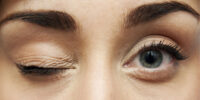How to Manage Eye Discomfort During Allergy Season

Eye discomfort during allergy season is a common issue that affects individuals.
This article aims to provide a comprehensive guide on managing eye discomfort during this period.
It will begin by discussing the underlying mechanisms of allergic reactions and identifying common eye allergens.
The article will then present strategies to minimize exposure to allergens, including the use of over-the-counter eye drops for allergies and natural remedies.
Additionally, it will offer practical tips for managing eye discomfort at home and outline when it is necessary to seek medical attention for eye allergies.
Key Takeaways
- Identify common eye allergens such as pollen, dust mites, pet dander, and mold spores to minimize exposure and manage symptoms effectively.
- Use preventive measures like keeping windows and doors closed, using air purifiers, and regularly washing bedding and curtains to reduce allergens in the home.
- Consider using over-the-counter or prescription eye drops specifically formulated for allergies to relieve symptoms like itching, redness, and watering.
- Explore natural remedies such as cold compresses, saline eye drops, and herbal teas to help alleviate eye discomfort, but consult with a healthcare professional before trying any natural remedies.
Understanding Allergic Reactions
Allergic reactions occur when the immune system overreacts to substances such as pollen, causing discomfort in the eyes. When exposed to an allergen, the immune system releases chemicals, such as histamines, which lead to a range of symptoms.
Allergic reaction symptoms affecting the eyes may include redness, itching, watering, and swelling. These symptoms can significantly impact an individual’s quality of life, interfering with daily activities and causing discomfort.
Allergic triggers that can lead to eye discomfort include pollen, dust mites, pet dander, mold spores, and certain medications. It is important for individuals who experience these symptoms to identify their specific allergens and take appropriate measures to minimize exposure.
Understanding the triggers and symptoms of allergic reactions can help individuals effectively manage and alleviate eye discomfort during allergy season.
Identifying Common Eye Allergens
Pollen, dust mites, pet dander, and mold spores are some of the common allergens that can cause eye irritation. Allergens are substances that trigger an allergic reaction in susceptible individuals. When these common eye irritants come into contact with the eyes, they can cause a range of allergy symptoms. These symptoms may include redness, itching, watering, and swelling of the eyes.
It is important to note that not everyone will experience the same symptoms, and the severity of symptoms can vary from person to person. Additionally, exposure to these allergens can also lead to other allergic reactions, such as sneezing, nasal congestion, and asthma symptoms.
Identifying the specific allergens that trigger eye irritation can help individuals take appropriate measures to avoid or reduce exposure, and manage their allergy symptoms effectively.
Minimizing Exposure to Allergens
To minimize exposure to common eye irritants, individuals can implement strategies that aim to reduce contact with allergens. Some effective methods to prevent exposure include:
- Keeping windows and doors closed during high pollen days to prevent allergens from entering the home.
- Using air purifiers with HEPA filters to remove allergens from the air.
- Washing bedding and curtains regularly to remove accumulated allergens.
In addition to these preventive measures, individuals can also try some home remedies to alleviate eye discomfort caused by allergies. These remedies include:
- Applying a cold compress to the eyes to reduce inflammation and soothe itching.
- Using over-the-counter artificial tears to keep the eyes lubricated and wash away allergens.
- Avoiding rubbing the eyes, as this can further irritate them.
Over-the-Counter Eye Drops for Allergies
This discussion aims to explore the topic of over-the-counter eye drops for allergies, focusing on three key points:
- The best allergy eye drops available
- The potential side effects to consider
- The safety of long-term use.
By objectively examining these aspects, we can gain a comprehensive understanding of the effectiveness, risks, and long-term implications of using over-the-counter eye drops for allergies.
This analysis will provide valuable insights for individuals seeking relief from allergic symptoms and help them make informed decisions regarding their eye health.
Best Allergy Eye Drops
One effective solution for managing eye discomfort during allergy season is to use the best allergy eye drops available on the market. These eye drops are specifically formulated to relieve symptoms such as itching, redness, and watering caused by allergies. Unlike over-the-counter eye drops, prescription eye drops are often more potent and can provide longer-lasting relief. Some common types of prescription eye drops for allergies include antihistamine drops, mast cell stabilizers, and corticosteroid drops.
While these eye drops can be highly effective, it is important to consult with a healthcare professional to determine the most suitable option for individual needs. In addition to prescription eye drops, there are also various home remedies that may provide temporary relief from eye discomfort during allergy season. These include using cold compresses, avoiding allergens, and maintaining good eye hygiene.
Side Effects to Consider
When using allergy eye drops, it is important to be aware of potential side effects. Although these medications can effectively relieve eye discomfort caused by allergies, they can sometimes cause adverse reactions.
Some common side effects include temporary stinging or burning sensations, blurred vision, dryness, and eye redness. In rare cases, individuals may experience more severe reactions such as eye pain, swelling, or allergic reactions.
To manage these side effects, it is recommended to follow the instructions provided by the manufacturer and consult with a healthcare professional if necessary.
Additionally, prevention tips such as avoiding allergens, washing hands frequently, and using cool compresses can help reduce the need for allergy eye drops and minimize the occurrence of side effects.
Long-Term Use Safety
Long-term use of allergy eye drops necessitates careful consideration of potential safety implications. While these drops can provide effective relief from eye discomfort during allergy season, it is important to be aware of the potential risks associated with their prolonged use.
- Allergic reactions: Some individuals may develop an allergic reaction to the eye drops, which can manifest as redness, itching, or swelling of the eyes.
- Increased intraocular pressure: Long-term use of certain eye drops containing steroids may lead to elevated pressure within the eye, putting individuals at risk for glaucoma or cataracts.
- Dependency: Continuous use of allergy eye drops may result in a dependency on the medication, making it difficult to discontinue their use without experiencing a rebound effect of increased eye discomfort.
Natural Remedies for Eye Discomfort
To address eye discomfort during allergy season, exploring natural remedies can be an effective approach. Many individuals prefer using natural remedies due to concerns about potential side effects of medications. Home remedies such as cold compresses, saline eye drops, and herbal teas can provide temporary relief from symptoms such as itching, redness, and swelling. Cold compresses can help reduce inflammation and soothe the eyes, while saline eye drops can flush out allergens and moisturize the eyes. Herbal teas made from chamomile, green tea, or calendula may help alleviate inflammation and provide relief. However, it is important to note that natural remedies may not be as effective as prescription medications for severe symptoms. It is always advisable to consult with a healthcare professional before trying any natural remedies.
| Natural Remedies | Effectiveness |
|---|---|
| Cold compresses | Moderate |
| Saline eye drops | Low |
| Herbal teas | Low |
Managing Eye Discomfort at Home
Exploring various strategies for alleviating eye discomfort at home can provide temporary relief from symptoms associated with allergies. Managing eye irritation and reducing eye redness are common goals for individuals seeking relief from eye discomfort.
Some effective strategies for managing eye irritation at home include:
- Cold compress: Applying a cold compress to the eyes can help reduce inflammation and soothe the eyes.
- Artificial tears: Using over-the-counter artificial tears can help lubricate the eyes and relieve dryness.
- Allergen avoidance: Taking steps to minimize exposure to allergens, such as keeping windows closed and using air purifiers, can help reduce eye irritation.
Implementing these strategies can help individuals find relief from eye discomfort and reduce the impact of allergies on their daily lives.
When to Seek Medical Attention for Eye Allergies
This discussion focuses on the signs of severe allergies and the importance of preventing long-term eye damage.
Recognizing the signs of severe allergies, such as severe itching, swelling, or difficulty breathing, is crucial in order to seek timely medical attention.
Additionally, implementing preventive measures to protect the eyes from prolonged exposure to allergens can help minimize the risk of long-term eye damage.
Signs of Severe Allergies
The signs of severe allergies can include persistent itching, redness, and swelling of the eyes, as well as excessive tearing. These symptoms can significantly impact an individual’s quality of life and may require medical attention.
Severe allergy symptoms can be distressing and may evoke feelings of frustration, helplessness, and discomfort. It is important to understand that allergic reactions are the result of the immune system’s overreaction to substances that are harmless to most people.
When exposed to allergens such as pollen, pet dander, or dust mites, the immune system releases chemicals, including histamine, which leads to the symptoms experienced during an allergic reaction.
Identifying and managing severe allergy symptoms is crucial to alleviate discomfort and improve overall well-being.
Preventing Long-Term Eye Damage
To mitigate the risk of long-term damage to the eyes, it is essential to implement preventive measures that minimize exposure to allergens and maintain proper eye hygiene.
Allergies can lead to various complications, such as conjunctivitis, corneal ulcers, and even vision loss if left untreated. Preventing these complications requires individuals to identify and avoid triggers, such as pollen, dust mites, and pet dander.
This can be achieved by keeping windows closed during peak pollen seasons, using air purifiers, and regularly cleaning bedding and carpets. Additionally, maintaining eye health involves practicing good eye hygiene, including washing hands before touching the eyes, avoiding rubbing the eyes, and using artificial tears to keep the eyes lubricated.
Following these preventive measures can greatly reduce the risk of long-term damage to the eyes and promote overall eye health.
Frequently Asked Questions
Are There Any Specific Foods That Can Help Alleviate Eye Discomfort During Allergy Season?
Studies have shown that certain foods may have potential benefits in alleviating eye discomfort during allergy season. These foods, considered as remedies, have been suggested to possess anti-inflammatory and antioxidant properties that could help reduce symptoms.
Can Wearing Sunglasses Help Reduce Eye Discomfort Caused by Allergies?
Wearing sunglasses can potentially help reduce eye discomfort caused by allergies by providing a physical barrier against allergens. However, the effectiveness of sunglasses may vary depending on the severity of the allergy. Eye drops may also be effective in managing symptoms.
Are There Any Specific Activities or Environments to Avoid During Allergy Season to Minimize Eye Discomfort?
Activities to avoid and environments to minimize eye discomfort during allergy season include spending time outdoors, particularly in areas with high pollen counts, and engaging in activities that can exacerbate eye irritation, such as gardening or prolonged exposure to dust.
Can Using a Humidifier in My Home Help Alleviate Eye Discomfort Caused by Allergies?
Using a humidifier at home may potentially help reduce eye discomfort caused by allergies. However, further research is needed to determine the effectiveness and safety of this intervention. Contact lens wear during allergy season should be considered carefully and discussed with a healthcare professional.
Is It Safe to Wear Contact Lenses During Allergy Season, or Should I Switch to Glasses for the Time Being?
The safety of wearing contact lenses during allergy season and the potential benefits of switching to glasses should be considered. Eye drops for allergies may provide relief regardless of the choice made.









